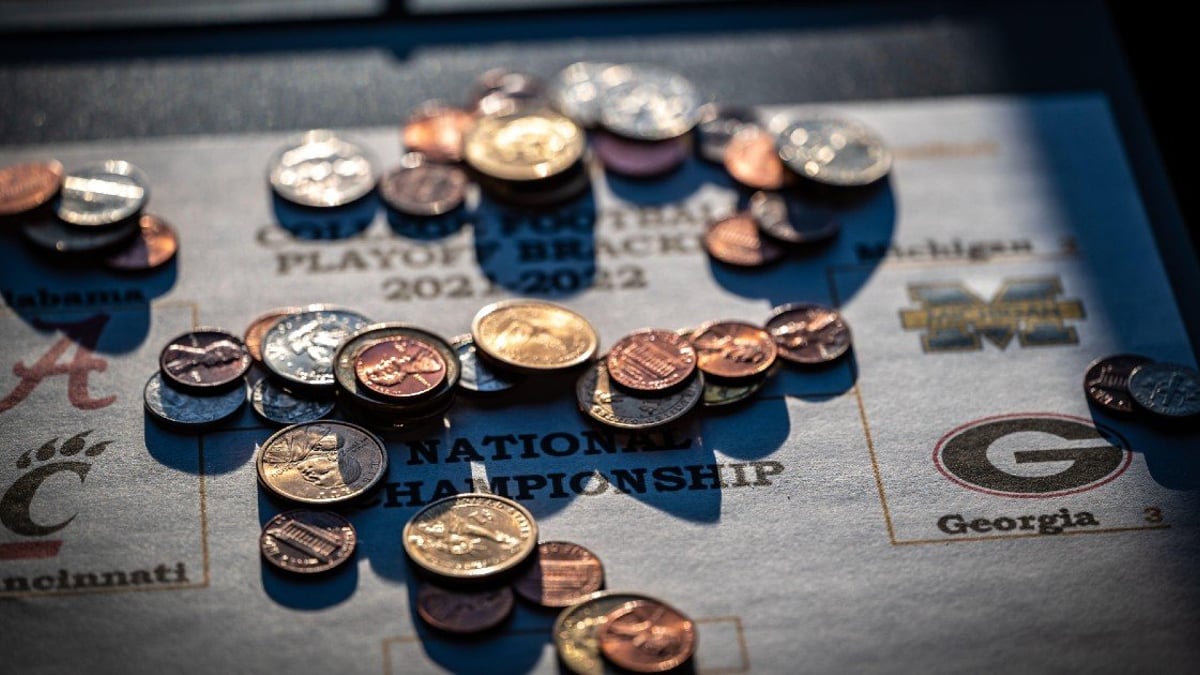Education Won’t Stop Athletes From Betting On Games

The NFL is investigating another player for violating its gambling policy, possibly betting on the NFL, including on his own team. Indianapolis Colts defensive back Isiah Rodgers tweeted Monday night:
“I know I have made mistakes and I am willing to do whatever it takes to repair the situation. The last thing I ever wanted to do was to be a distraction to the Colts organization, my coaches, and my teammates. I’ve let people down that I care about. I made an error in judgment and I am going to work hard to make sure that those mistakes are rectified through this process. It’s an honor to play in the NFL and I have never taken that lightly. I am very sorry for all of this. “
— Isaiah Rodgers Sr. (@rodgers_isaiah) June 6, 2023
Per ESPN, the bets were placed with a sports betting account registered to an associate of Rodgers. “Approximately 100 bets were placed on the account over an undisclosed amount of time, including on Colts games … Most of the bets were in the $25-$50 range, although there was at least one low four-figure bet.”
What bets were placed on behalf of Rodgers is unclear at this time.
The news comes on the heels of several other gambling-related violations by Detroit Lions and Washington Commanders members in April and NCAA investigations into rampant student-athlete sports betting at Iowa and Iowa State.
We Told You So vs. Legalization Is Working
The numerous instances of athletes betting haven’t gone unnoticed by sports betting supporters, opponents, or those in the middle. And to no one’s surprise, the discourse has seesawed between two poles, the “we told you an expansion of legal sports betting would be a problem” crowd and the “legal markets are doing their job and catching bad actors” crowd.
As with most things, the truth is somewhere in between. One of the most oft-cited responses from both sides is that we need to educate athletes better so they don’t make bad decisions.
ESPN’s David Purdum tweeted, “There’s a theory that society struggles to adjust in the early years after an illicit activity, like betting, is brought into a regulated environment but eventually adapts. I believe we’re in that adjustment period: More mistakes will be made but eventually players will learn.”
The first sentence is correct. The second sentence is also correct, but not in the way most think.
We see the low-hanging fruit — the bottle of Androstenedione in Mark McGwire’s locker. In the future, we can expect the violators to become more sophisticated, and bottles in lockers will give way to the “cream” and the “clear” era.
Athletes won’t see the light; they will learn to adjust their gambling behaviors not to get caught. It’s not unlike a minor trying to purchase booze. Yes, liquor stores and bars have become far more stringent with checking IDs, but someone who wants to drink can roll the dice and hope they don’t get carded, go the fake ID route, find someone of age to purchase for them, have a connection, or any other number of possibilities.
Drug Testing Doesn’t Eliminate Drug Use
A less apt but important comparison, because it delves into the mindset of athletes, is PED usage.
The UFC implemented the USADA’s drug-testing policy in 2015. Nowadays, a positive steroid test is rare, but that doesn’t mean steroid use is a thing of the past. Fighters are better educated, but not in the way you think. They know when and what to take. They know how the UFC tests for performance-enhancing drugs and what they must avoid.
Has it helped? Yes, but only at the margins. Just like potential bettors in professional sports, the ones who will do it (and more so, those who might bet on their own league or team) won’t be swayed by more education.
“So the guys that are using, the guys that are failing the drug tests, they are known, but you’ve got to catch them,” Chael Sonnen said. And Sonnen would know as a UFC veteran and violator of the PED policy.
Another UFC fighter, Sara McMann, said this about PEDs:
“I can tell you, unequivocally there are people cheating, and I’ve actually fought opponents; sometimes it’s people I beat, and sometimes it’s people that I haven’t. And I’ve had some of their teammates message me personally. I won’t say who, but like, hey, I don’t know if this helps or not but they definitely are doing PEDs and like it’s, it kind of breaks my heart.”
Upshot
Athletes are going to gamble. These are young, successful, competitive individuals who essentially feel bulletproof.
The notion that legalization will curtail this activity through some combination of investigation, enforcement, and education is not all that different from thinking setting the drinking age of 21 will keep teenagers from getting a hold of alcohol.
Be first to get our exclusive sports offers!
Join today to stay up to date on your states gambling news and offers.








